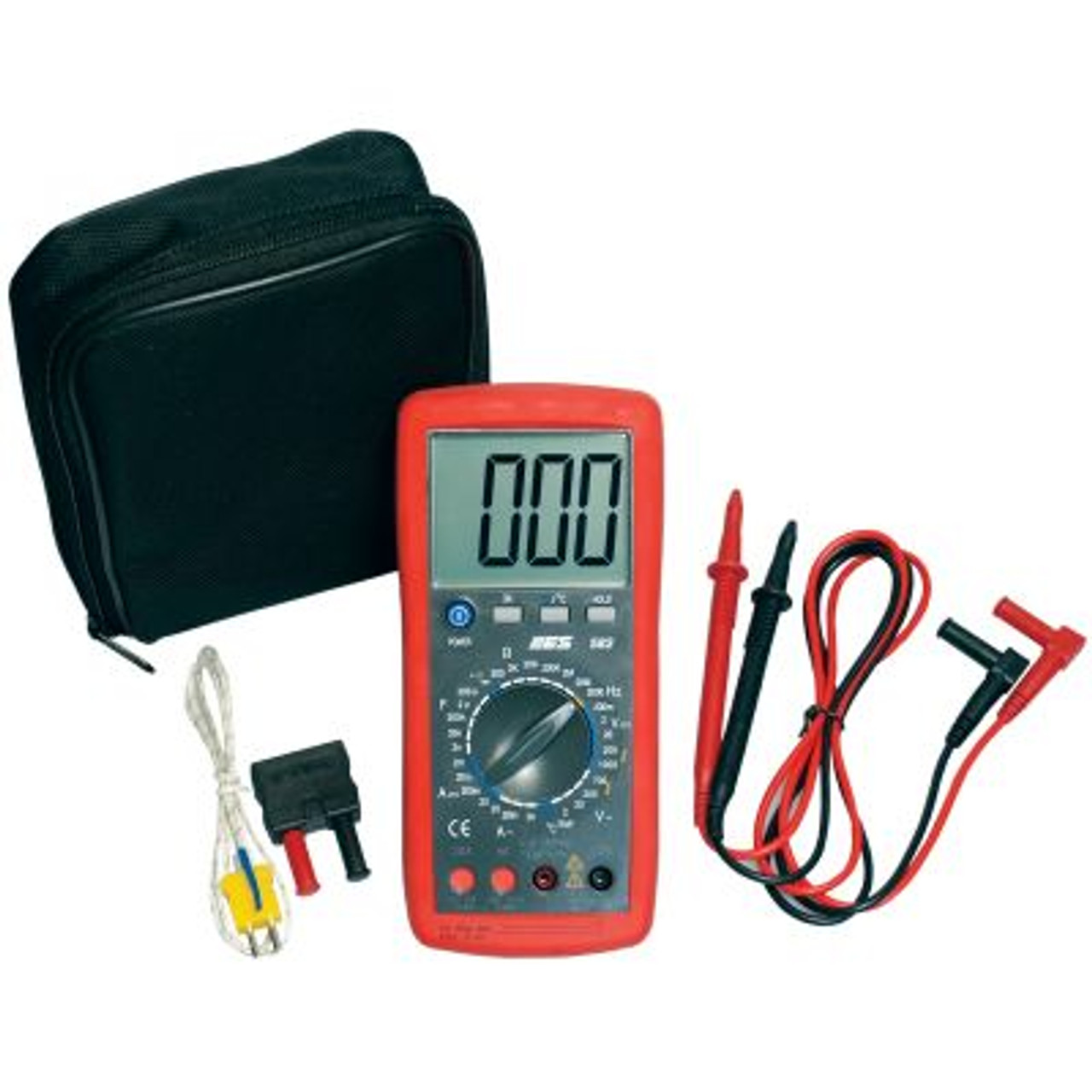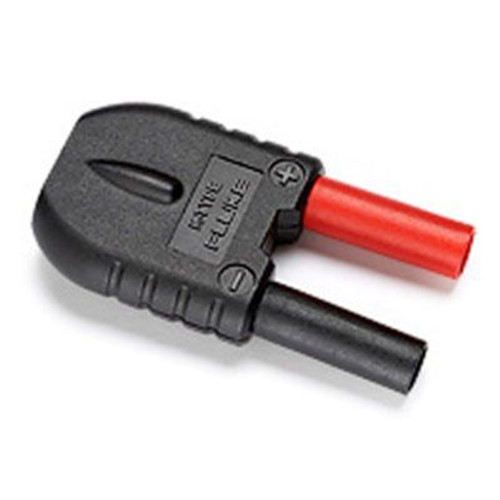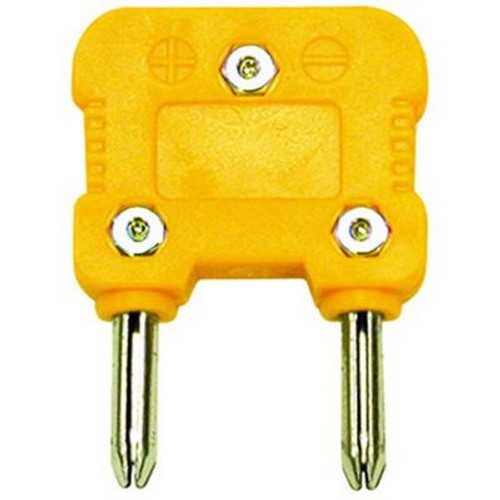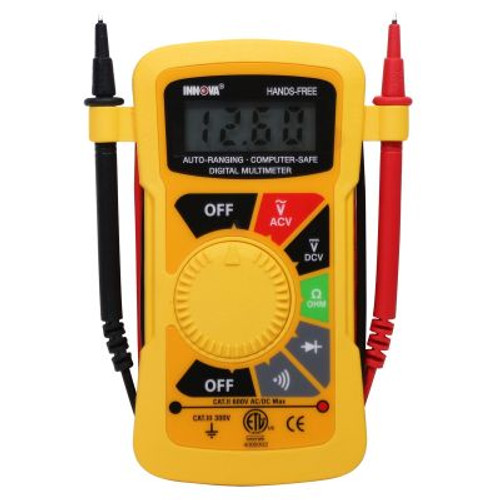Product Description
Features and Benefits
- Amp Shutters prevent mistaken operation, improve safety and saves fuses by blocking unused amp jacks
- Huge 2" LCD Display, easy to see from across the room. LCD is back-lit for use in dark spaces
- Great Meter for electrical trouble shooting features 11 test functions and 33 test ranges
- Desirable 20 Amp Test Range that measures temperatures in Both F and C. Probe Included
- Carrying case, Test Leads, Temp Probe, Instructions and Battery is included
This is a new DMM which we like because it has the unique and differentiating feature of amp shutters. The amp shutters prevent mistake operation, fuse blowing and improves user safety. Not to mention I really like that the digits on the LCD are just huge and can be seen from across the room. Now, getting back the amp shutters, they block the unused amp jacks. As you can see in the attached image and in the sales flyer, there are 4 test lead jacks. In this image, the DMM is set to 200mA. The only open test lead jacks are the ground jack and the mA jack. You can not put the test leads into the wrong test lead jack because the unused test lead jacks are blocked.
Here’s how the amp shutters affect the user operation. When the tech goes to move the DMM test function from voltage to amps…..the function selector dial is blocked and it won’t move to the Amps function until he/she removes the red test lead from the V jack. Once removed, the shutter swings up inside the DMM and then the Amps jack is opened up. Then the red test lead can be pushed into the Amp jack. Only after the red test lead is removed from the V jack can the operator then switch the DMM to the Amps function.
Now, when you reverse this situation, we get much improved safety and many many less blown fuses. The most dangerous part of operating a DMM is when a tech forgets to move the red test lead from the Amp jack back to the Volts jack. Then they plug the DMM into a wall socket to measure AC Volts. What happens next is the fuse blows, hopefully. But there is a very small possibility that the fuse does not blow quickly enough, resulting in unlimited current passing through the now “in series” instrument and the DMM in turn explodes in his/her hand. This is a rare occurrence, but this is why there are fuses in the DMM. Fuses are there to prevent exploding DMM’s. With 582, if the red test lead is left in the Amps jack and the user switches the DMM to AC Volts like in the above example, the dial switch won’t move. He/she looks down and remembers to switch the red test lead back to the Volts jack and you have that potential issue corrected and avoided. To sum it up, we like this function, it protects blow fuses and improves safety. Schools should also be a good prospect for this DMM.








